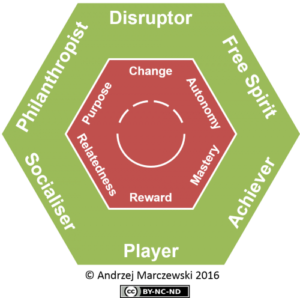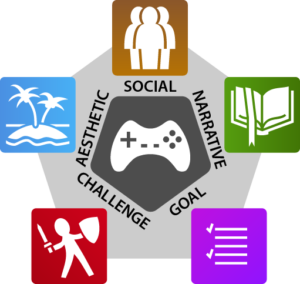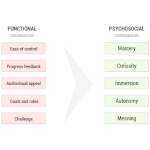The HCI Games Group conducts research in information and communication technologies, design, psychology, and human-computer interaction related to games and gamification. We are part of Waterloo HCI and located at the Stratford School of Interaction Design and Business and the Games Institute. Our current research areas include:
Gamification: Involves the use of game design principles in systems that primarily support non-game tasks, with the goal of increasing fun, engagement and motivation. Dr. Nacke has been involved in the definition of the term and leading the academic movement in workshop and conference settings. His students have created several games that were deployed outside of gaming contexts, such as finance, social networks, and fitness.
Games user research: Developing new methods and tools for improving player testing and user research in games and entertainment systems. We work closely together with the International Game Developers Association Special Interest Group on Games User Research.
Games for human health, wellbeing, and fitness: We have recently begun to focus on making sports, physiological exercise, health, and wellbeing applications more playful, especially in light of the recent increase in sensor use and the quantified self movement.
HCI for games: Finding novel sensors and interaction paradigms that drive the manner in which we interact with computers in a meaningful and engaging way.
Affective gaming: Research using psychophysiological analysis and physiological sensors to track player sentiments when gauging engagement, cognition and player emotions.
Social relationship-building games: Developing games and installations that can be used in public spaces to build relationships and foster social interaction in groups.
Projects
Player Preferences/Experience Scales
Gamification User Types Hexad

Player Traits

PIX: Player Experience Inventory


